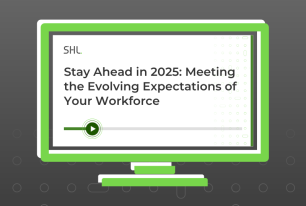3 Ways Employers Can Support Employees During the Holy Month of Ramadan
Ramadan is practiced by millions of Muslims around the world. How can you as an employer consider people’s needs and support an inclusive workplace?
Share
It is the time for Ramadan! A holy month of repentance and reflection and celebrated in the 9th month of the Islamic calendar. It is also a time in which extra attention is paid to tolerance, generosity, charity, and togetherness.
During Ramadan, Muslims are fasting between fajr (dawn) and maghrib (sunset) for about 30 days. The starting day is different every year, as Islam is following the lunar calendar. As the sun rises and sets differently in the west and in the east, some people may also have a longer period of fasting. As an example, our Muslim colleagues in Europe who have longer sunny days during this time may have extended fasting hours for around 17 hours compared to those in other regions.
The combination of long fasting hours and a hot climate makes it tough for many of our Muslim colleagues. In this blog, I want to share some tips for what employers can do to support them.
Ramadan in the Workplace
Celebrating Ramadan influences employees, which employers should be aware of and be supportive towards. Even though we are still in lockdown because of the pandemic in most places in the world, there are millions of Muslims celebrating Ramadan in April and May. Depending on the type of business, they might do that from home or the office. Either way, it is critical to consider people’s needs during these times and maintain respect across the organization.
Here are 3 things to take into consideration to support employees and colleagues who celebrate Ramadan and create an inclusive environment:
- Embrace diversity: being mindful towards Ramadan and practicing employees is an act that demonstrates how your organization embraces diversity and inclusion. It shows that there is room for everyone’s beliefs and that the organization accommodates adjustments that support for people to practice what they believe.
- Support flexibility: as people might have less energy during fasting hours, you can support having more heavy tasks done in the morning and leave the less heavy tasks for the afternoon. Being flexible with employees’ working hours, time to pray, and time to rest helps employees to feel understood and supported, which will result in higher commitment and productivity during the rest of the day.
- Communicate: as eating and sleeping patterns differ per person throughout the month of Ramadan, it is good to have a conversation with employees who practice it, to understand their needs and how it might impact work, and what they need to do well at work during the month. Also communicate with employees who do not celebrate it, to create awareness and understanding for others across the organization and encourage discussion.
Rights for employees do not necessarily change during Ramadan. However, you should be supportive of anyone’s beliefs, and with small gestures, you can make a major difference. Respecting diversity and creating an inclusive workplace is important, as it helps build trust in the community and business.
If you have the chance to celebrate Eid-ul-Fitr, which is the closing of the Ramadan period, do not miss out on that opportunity! Muslims celebrate the end of Ramadan by showing gratitude towards Allah and by sharing this moment with their friends and family, exchanging gifts, and seeking forgiveness from each other. It is a beautiful moment to watch, to be part of, and to be supported by the organization.
Ramadan Mubarak to all and wishing you and your families all the best!









